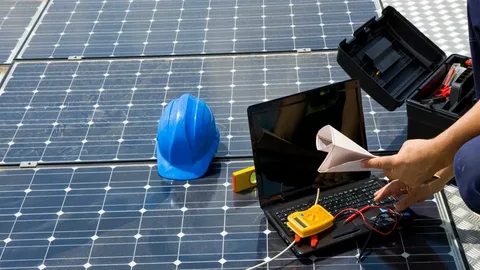As the demand for renewable energy grows, solar power has emerged as a leading solution for clean and sustainable electricity. However, one of the main challenges of solar energy is its dependency on sunlight. This is where lithium battery companies in Pakistan come in. By efficiently storing excess energy, they ensure a reliable power supply even when the sun isn’t shining.
Why Use Lithium Batteries for Solar Energy?
Lithium batteries offer several advantages over traditional lead-acid batteries, making them an ideal choice for solar energy storage:
- Higher Efficiency – Lithium batteries have a higher depth of discharge (DoD) and efficiency rates, meaning they can store and release more usable energy.
- Longer Lifespan – With a lifespan of up to 10–15 years, lithium batteries outlast lead-acid batteries, reducing maintenance costs.
- Faster Charging – These batteries charge more quickly, allowing you to store more energy during peak sunlight hours.
- Compact and Lightweight – Their sleek design makes them easier to install and integrate into residential or commercial solar systems.
- Better Performance in Extreme Conditions – Lithium batteries perform well in both high and low temperatures, making them suitable for various climates.
How to Optimize Solar Energy Storage with Lithium Batteries
To maximize the benefits of solar energy storage, consider the following strategies:
1. Choose the Right Lithium Battery Type
There are different types of lithium batteries, with Lithium Iron Phosphate (LiFePO4) being the most recommended for solar energy storage due to its safety, efficiency, and longevity.
2. Ensure Proper Battery Sizing
Selecting the correct battery size is crucial. Consider your household or business energy consumption, the solar panel capacity, and the expected storage requirements. A properly sized battery prevents energy wastage and ensures a continuous power supply.
3. Use an Efficient Charge Controller
A high-quality charge controller regulates energy flow between the solar panels and the battery, preventing overcharging and extending battery life. MPPT (Maximum Power Point Tracking) controllers are preferred for better energy conversion.
4. Implement Smart Energy Management
Using energy monitoring systems helps track real-time energy production and consumption. Smart energy management tools optimize usage, ensuring stored power is used efficiently.
5. Maintain Battery Health
To enhance battery performance and longevity, follow these maintenance tips:
- Avoid deep discharges and maintain an optimal charge level.
- Keep the battery in a well-ventilated and temperature-controlled area.
- Regularly check connections and software updates (if applicable).
The Future of Solar Energy with Lithium Batteries
As solar energy adoption grows, lithium battery technology is continuously evolving. Advances in solid-state lithium batteries, AI-powered energy management, and high-capacity storage solutions will further enhance solar energy systems, making them more efficient and accessible.
Conclusion
Integrating lithium batteries with solar power systems is a game-changer in renewable energy. Their efficiency, durability, and ability to store energy for later use make them an essential component for maximizing solar energy. Whether for residential, commercial, or industrial applications, lithium batteries offer a sustainable and cost-effective solution for clean energy storage.
Would you like any modifications or additional details?



